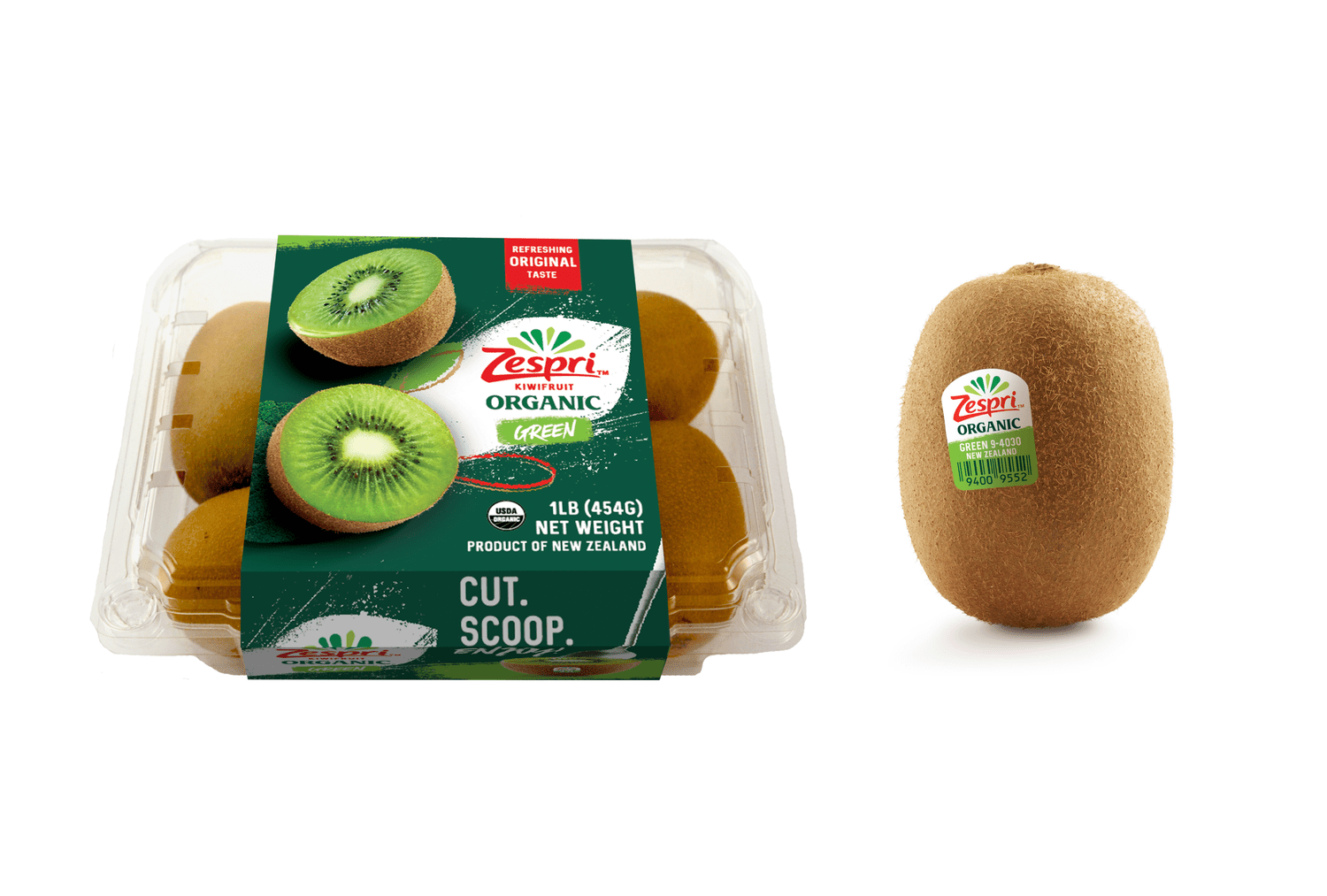Recall Issued for Zespri Kiwifruit Over Potential Listeria Contamination

Certain Zespri brand kiwifruit are being voluntarily recalled due to possible listeria contamination, according to an announcement shared Tuesday by David Oppenheimer and Company I, LLC (Oppy).
The recall affects one-pound clear plastic clamshells of organic green kiwifruit bearing the Zespri brand name and UPC code 8 18849 02009 3. The affected clamshells contain fruit stickered with the GTIN bar code 9400 9552.
According to the company's announcement, the recalled green kiwis were grown in New Zealand and then exported to North America where they were repacked.
The affected kiwifruit was shipped between June 14, 2023 and July 7, 2023 and sold at retail locations in 14 states throughout the U.S.: Florida, Georgia, Illinois, Indiana, Kentucky, Missouri, North Carolina, New York, Ohio, Pennsylvania, Tennessee, Texas, Virginia, and Wisconsin.
Zespri organic green kiwifruit sold in any of the other 36 states is not affected by the recall. Any kiwifruit shipped after August 7, 2023 is also not affected.
The recall was reportedly the result of a routine sampling conducted by the Kentucky Department of Health on July 7, 2023. Oppy was then notified of the results and worked with Zespri to trace the affected products back to grower lots.
Distribution of organic green kiwifruit from the affected lots was immediately stopped, as the company continues its investigation into the affected fruits.
The recall announcement noted that no illnesses linked to the potential kiwifruit contamination have been reported so far, and no other Oppy products are part of the recall.
The affected kiwifruit was recalled due to the potential to be contaminated with Listeria monocytogenes, a bacterium that, when ingested, can cause an infection called listeriosis.
The Centers for Disease Control and Prevention estimates that 1,600 people get listeriosis each year, and 260 die from the infection. Listeriosis can be serious and sometimes fatal in young children, frail or elderly people, and people with weakened immune systems.
The infection is often less severe for immunocompetent people, but in pregnant women, listeriosis can cause miscarriages or stillbirths.
For those who are at risk for serious or fatal outcomes from listeriosis, the infection may turn into an invasive illness or an infection spread beyond the gut.
Symptoms of invasive listeriosis start within two weeks of eating contaminated food and may include:
- Headache
- Stiff neck
- Fever
- Confusion
- Loss of balance
- Convulsions
In less severe cases, listeriosis stays confined to the gastrointestinal system. Symptoms of intestinal illness linked to Listeria infection typically start within 24 hours of eating contaminated food and include diarrhea and vomiting.
Invasive listeriosis is typically treated with antibiotics; intestinal illness from listeriosis usually clears up on its own and can be managed with supportive care, like pushing fluids.
There may not be a foolproof way to prevent listeriosis, but it's possible to choose foods that are less likely to be contaminated with Listeria.
Elderly people, people with weakened immune systems, and pregnant people and newborns may want to avoid the following foods to protect their health:
- Unpasteurized milk and dairy products
- Soft cheeses made from unpasteurized milk
- Raw or undercooked seafood
- Refrigerated pâté or meat spreads
- Refrigerated smoked seafood
To make many of these risky foods a bit safer, they can be cooked until 'steaming hot' or at least 165 degrees Fahrenheit. Homemade foods and fruits that you cut up yourself are also often safer options.
As for the recalled kiwifruit, Oppy urged people who may have the fruit in their home not to eat them and throw them away immediately. People may also contact Oppy with questions at 1-866-698-2580, Monday–Friday from 9 a.m. to 4:30 p.m. PDT, or email [email protected].




